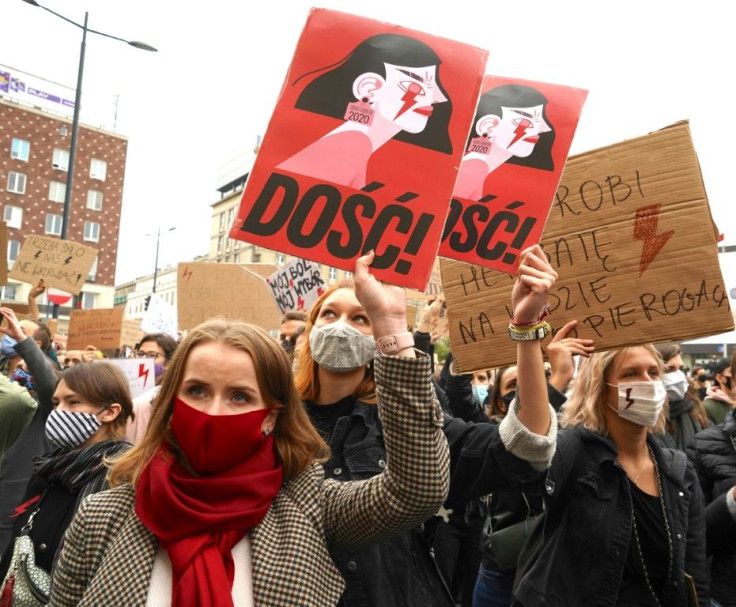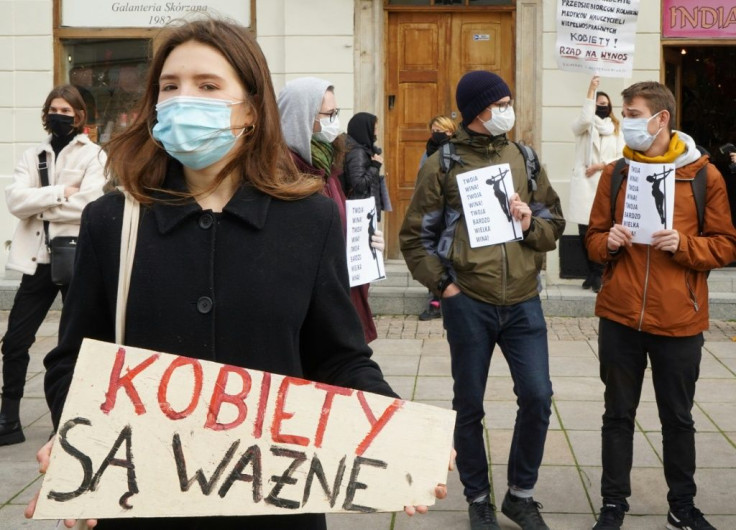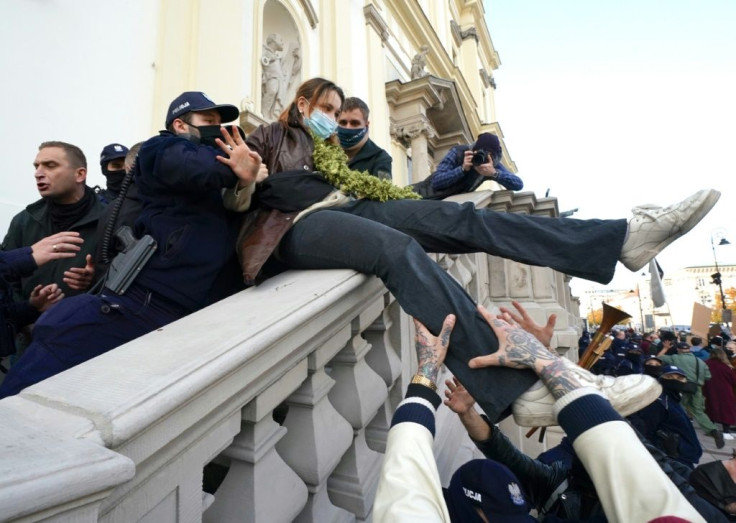Polish Churches Become Battleground In Abortion Fight
Graffiti on church walls, demonstrations during mass and angry confrontations with priests: Catholic churches have become a new battleground in the struggle over abortion rights in Poland.
Protests against churches are unprecedented in what is a traditional bastion of Catholicism and they have prompted stern warnings by the government as well as mobilisations by far-right groups.
The revolutionary fervour comes after a series of scandals implicating senior clergymen in sexual abuses and cover-ups, as well as Church-backed campaigns against so-called "LGBT ideology".
"Various streams have formed a river," Adam Szostkiewicz, an author and commentator on religious affairs, told AFP.

The Catholic Church "is no longer considered a religious institution but a source of political influence," he said.
Mass protests began last week when Poland's Constitutional Court ruled that an existing law allowing the abortion of damaged foetuses was "incompatible" with the constitution.
There are fewer than 2,000 legal abortions in Poland every year, although women's groups estimate some 200,000 women abort either illegally or abroad.

A recent poll found that 66 percent of Poles disapprove of the court ruling and 69 percent would be in favour of a referendum on abortion rights.
The court had been petitioned by members of the ruling populist and ultra-Catholic Law and Justice (PiS) party, which has supported the verdict.
But hundreds of thousands of Poles have taken to the streets in mostly peaceful demonstrations that have included some protests against churches.
Prime Minister Mateusz Morawiecki has condemned the protests as "barbarism" and President Andrzej Duda called them "an insult to religious sentiment".
PiS leader Jaroslaw Kaczynski, seen as Poland's true powerbroker, said the protests were an attempt to "destroy Poland".

Kaczynski, a deputy prime minister in charge of national security, has called on party members to "defend the churches" ahead of a large demonstration planned in Warsaw on Friday.
Polish bishops have generally welcomed the court ruling but some senior figures in the hierarchy have sought to put across a more nuanced message.
The Polish episcopate's spokesman, Father Leszek Gesiak, told reporters: "It was not the Church that started this war. We did not want this".
Poland's primate, the most senior figure in the Polish Church, Archbishop Wojciech Polak, has called on all sides to "reject violence" and "ease the conflict".
But the author Szostkiewicz said young protesters interpret these words as "a festival of hypocrisy".
The leftist weekly Krytyka Polityczna said there was no longer a "JPII generation" -- a reference to the youth following of late Polish pope Saint John Paul II -- but a ".JPG generation".
Born after the collapse of communism in 1989 and often well travelled, many of the young Poles protesting now have only known liberal democracy.
"Young people are far more secularised than their parents' or their grandparents' generation and are often filled with European, British or American culture more than Polish," said Mikolaj Czesnik, head of the Institute of Social Sciences in Warsaw.
"There is an entire cultural and technological rupture going on. Young people are simply in another place."
Observers said it is still unclear whether the more tolerant side of the Church will win out over a more conservative wing allied with the government.
"Fitting in with the course set by Kaczynski would signal a total collapse of the Church's authority," Szostkiewicz warned.
But he added that the current situation shows the Church's bid to retain authority "may already be lost".






